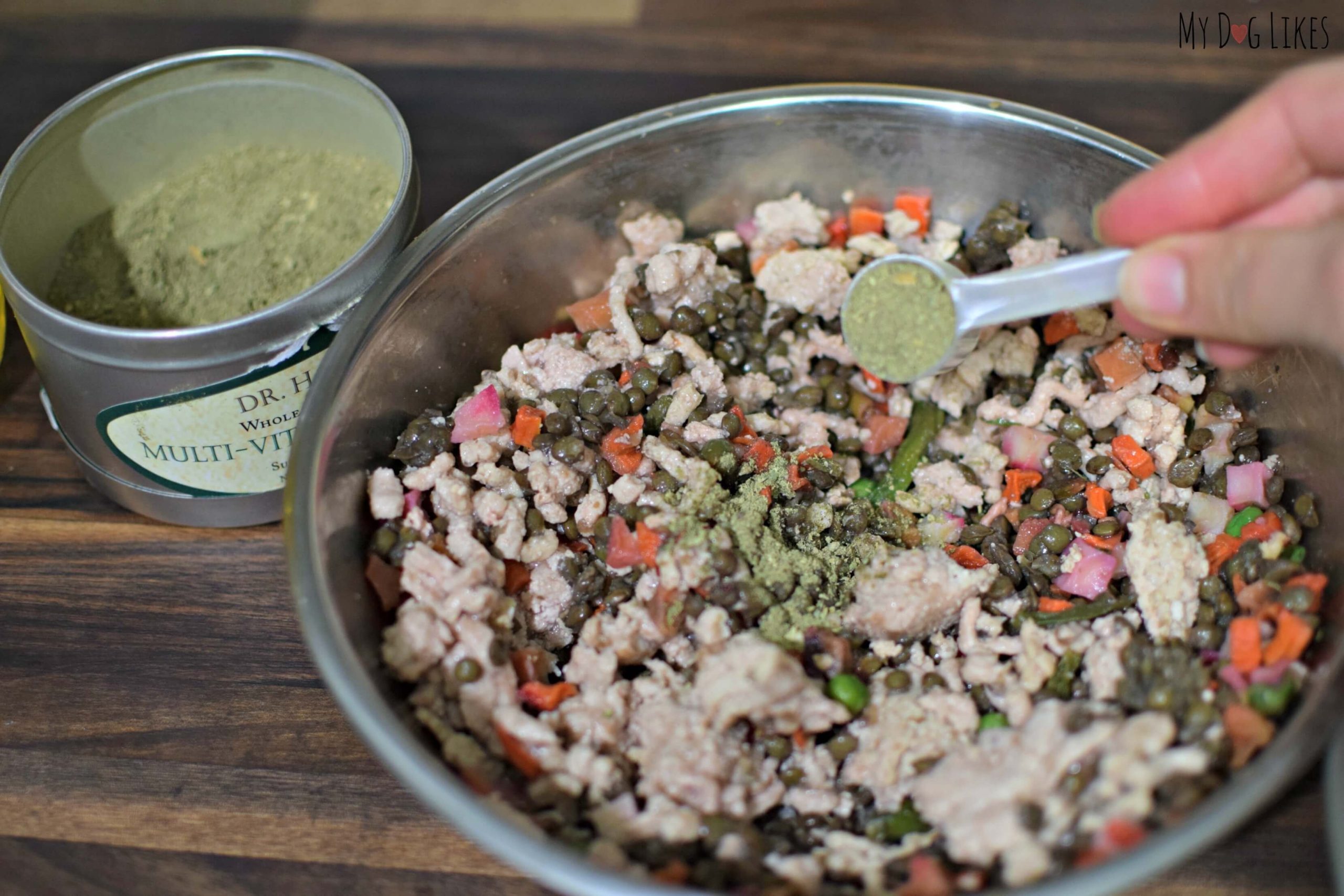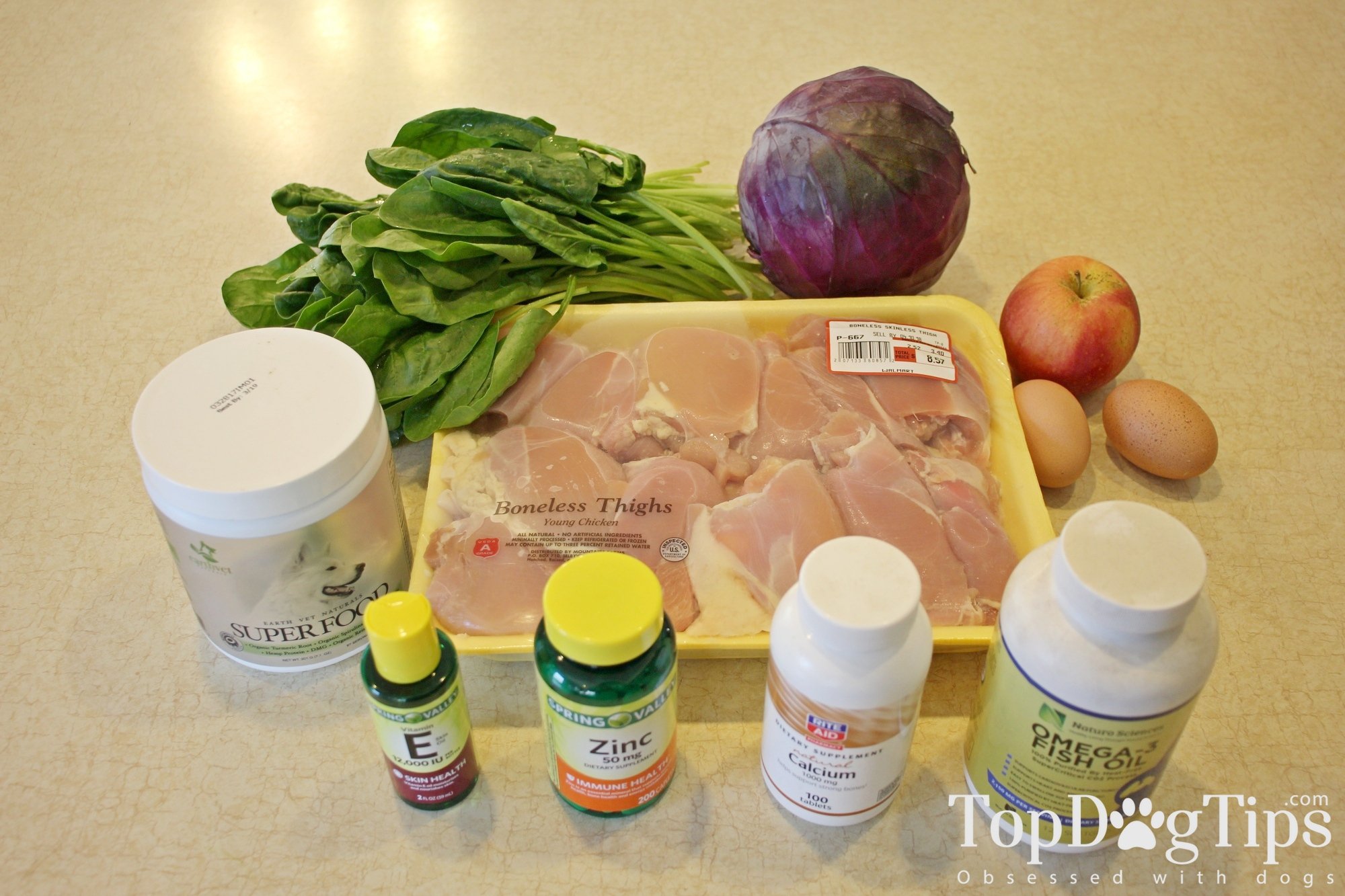Discover the Best Supplement to Add to Homemade Dog Food for Optimal Nutrition. Learn how to choose the right supplements for your pet’s specific needs and ensure a balanced diet for their overall well-being.
Key Takeaways:
- Supplements can address specific health concerns and everyday needs.
- Always consult with a veterinarian before adding supplements to your dog’s diet.
- Homemade dog food offers control over ingredients but requires knowledge of canine nutrition and time.
- Owners often feed homemade dog food due to concerns about commercial foods or the desire for healthier options.
Best Supplement to Add to Homemade Dog Food

Homemade dog food can provide your furry friend with a nutritious and delicious meal, but it may not always contain all the essential nutrients they need. By adding certain supplements to your homemade concoctions, you can ensure your dog receives a complete and balanced diet. Here are some of the best supplements to add to homemade dog food:
- Calcium: Bone meal or eggshells provide essential calcium for strong bones and teeth.
- Phosphorus: Bone meal, organ meats, or pumpkin seeds contain phosphorus, which supports healthy bones and muscles.
- Omega-3 Fatty Acids: Salmon oil, flaxseed oil, or krill oil provide Omega-3s that support skin and coat health, joint function, and cognitive development.
- Vitamin E: Sunflower seeds, wheat germ, or leafy greens are rich in Vitamin E, which acts as an antioxidant and supports immune function.
- Probiotics: Plain yogurt or kefir provide beneficial bacteria that aid digestion and support a healthy gut microbiome.
- Glucosamine and Chondroitin: These supplements, found in bone broth or green-lipped mussel powder, support joint health and reduce inflammation.
- Taurine: Meat, eggs, or seaweed provide taurine, which is essential for heart health and brain function.
- Vitamin D3: Egg yolks or cod liver oil contain Vitamin D3, which aids calcium absorption and supports immune function.
- Vitamin A: Liver, carrots, or sweet potatoes provide Vitamin A, which supports vision, immune function, and skin health.
How to Choose the Right Supplements:
When choosing supplements for your dog’s homemade food, it’s important to consider their age, size, and health status. You should also choose high-quality supplements from reputable brands.
How to Add Supplements to Homemade Dog Food:
The appropriate dosage and frequency for each supplement will depend on your dog’s individual needs. It’s always best to consult with your veterinarian before adding any supplements to your dog’s diet.
Benefits of Adding Supplements to Homemade Dog Food:
Adding supplements to your dog’s homemade food can provide them with a number of benefits, including:
- Improved overall health and well-being
- Reduced risk of certain diseases
- Improved skin and coat health
- Increased energy levels
- Reduced inflammation
- Improved joint function
Conclusion:
By supplementing your dog’s homemade food with the right nutrients, you can help them live a long, healthy, and happy life. Talk to your veterinarian today to learn more about the best supplements to add to homemade dog food.
For the most comprehensive listing of rental homes, check out the best site to search for rental homes. Thinking of building a tiny home in California? You won’t want to miss our guide to the best tiny home builders in California. And if Florida is more your speed, be sure to check out our picks for the best tiny home builders in florida.
Omega-3 Fatty Acids for skin, coat, joint, and cognitive health.
Did you know that Omega-3 Fatty Acids can do wonders for your furry friend’s skin, coat, joints, and cognitive health?
- Skin and Coat: Dry, itchy skin? Omega-3s to the rescue! They nourish and moisturize the skin, reducing inflammation and promoting a healthy, shiny coat.
- Joints: Stiff joints? Omega-3s act as natural anti-inflammatories, reducing pain and improving mobility.
- Cognitive Health: Keep your dog’s mind sharp! Omega-3s support brain function and protect against cognitive decline.
Key Takeaways:
- Omega-3 fatty acids benefit skin, coat, joints, and cognitive health.
- They reduce inflammation, improve skin and coat health, and support joint function.
- Omega-3s are important for cognitive development and protection against decline.
Source:
Omega-3 Fatty Acids and Skin Diseases
Vitamin E as an antioxidant and immune support
Animal companions, especially dogs, play a very important role in our lives, serving as faithful pals and beloved companions. They deserve the best possible care, including providing them with a nutritious and wholesome diet. When preparing homemade dog food, it is important to consult with a veterinary nutritionist to ensure that your furry friend is consuming a balanced and complete meal, encompassing all the essential nutrients required for optimal well-being. Among the necessary nutrients that can be added to homemade dog food is Vitamin E, a powerful antioxidant with a crucial role in supporting the canine immune system.
Key Takeaways:
- Vitamin E serves as a potent antioxidant, safeguarding cells from oxidative damage and protecting delicate fatty acids from harm.
- It plays a pivotal role in bolstering the immune system, strengthening its ability to ward off infections and maintain overall well-being.
- Natural sources of Vitamin E for dogs include sunflower seeds, wheat germ, and leafy greens, providing a rich supply of this essential nutrient.
- Consultation with a veterinarian is paramount when considering supplements, ensuring that the dosage and frequency align precisely with your dog’s specific needs.
- Store supplements appropriately to maintain their potency and effectiveness.
Citation
The Role of Vitamin E in Immunity
Probiotics for healthy digestion and gut microbiome
Probiotics are live beneficial bacteria that, when consumed in adequate amounts, provide health benefits to the host. They help improve the gut microbiome, which is linked to better immune function, reduced inflammation, and improved digestion.
Not all probiotics are created equal. When choosing a probiotic for your dog, look for one that contains strains that have been shown to be beneficial for dogs. You can also talk to your veterinarian for recommendations.
In summary, probiotics are important for your dog’s health. They help improve digestion, reduce inflammation, and boost the immune system. If you are looking for a way to improve your dog’s health, adding probiotics to their diet is a great option.
Key Takeaways:
- Probiotics are live beneficial bacteria that provide health benefits to the host.
- Probiotics help improve the gut microbiome, which is linked to better immune function, reduced inflammation, and improved digestion.
- Not all probiotics are created equal. When choosing a probiotic for your dog, look for one that contains strains that have been shown to be beneficial for dogs.
- Talk to your veterinarian before adding probiotics to your dog’s diet.
Source: Probiotics for the Prevention and Treatment of Gastrointestinal Diseases
FAQ
Q1: What are the best supplements to add to homemade dog food?
A1: Essential supplements for homemade dog food include Omega-3 fatty acids for skin and joint health, Vitamin E as an antioxidant, and probiotics for digestive support. Consult with a veterinarian to determine the appropriate dosage and frequency based on your dog’s individual needs.
Q2: Why is it important to add supplements to homemade dog food?
A2: Homemade dog food may lack certain nutrients found in commercial dog foods. Supplements ensure your dog receives a balanced and complete diet, addressing specific health concerns or providing additional support for overall well-being.
Q3: How often should I add supplements to my dog’s homemade food?
A3: The frequency of supplementation depends on the type of supplement and your dog’s individual needs. Follow the recommended dosage and frequency provided by your veterinarian or the manufacturer’s instructions.
Q4: Are there any risks associated with adding supplements to homemade dog food?
A4: Some supplements may interact with medications or have side effects if given in excessive amounts. Always consult with a veterinarian before adding supplements to your dog’s diet to avoid potential health risks.
Q5: Where can I buy supplements for homemade dog food?
A5: Supplements for homemade dog food are available at veterinary clinics, pet supply stores, and online retailers. Choose reputable brands with transparent labeling and guaranteed quality.
- Modern Butcher Block Kitchen: Warmth and Style with White Cabinets - January 6, 2026
- White Cabinets with Butcher Block Countertops: A Kitchen Classic - January 5, 2026
- White Kitchen With Butcher Block Countertops: A Warm, Inviting Design - January 4, 2026










